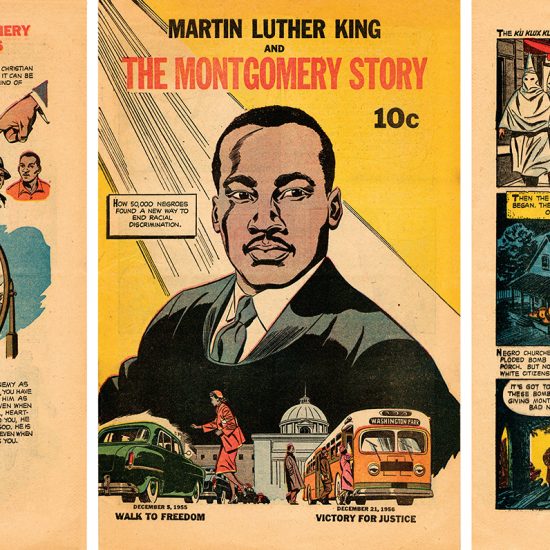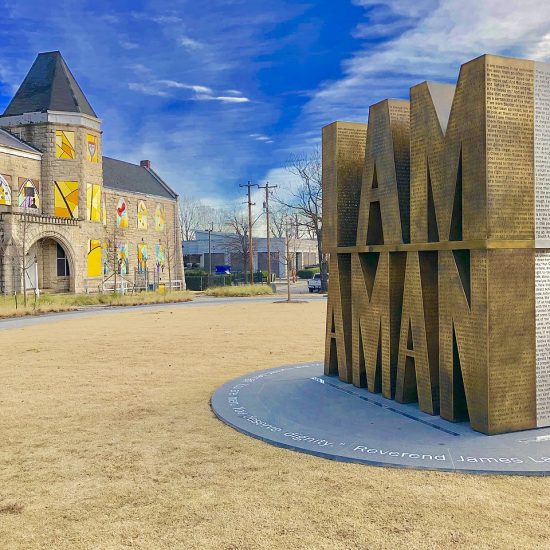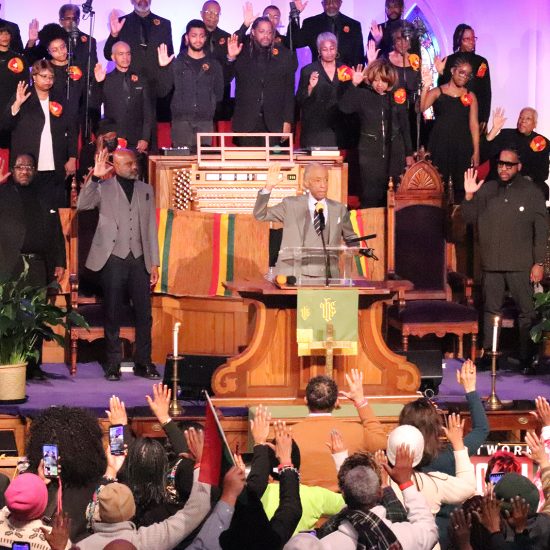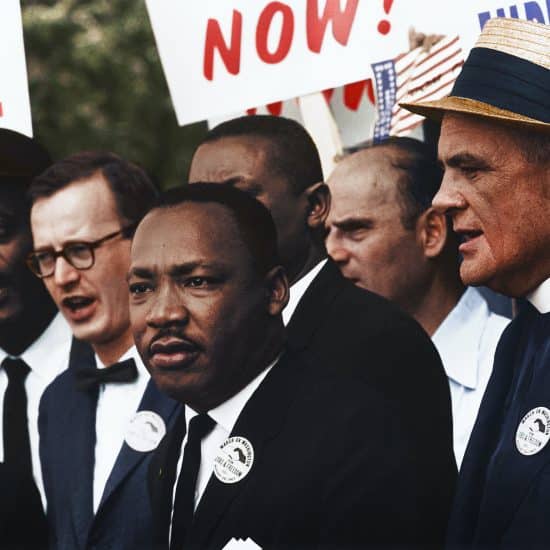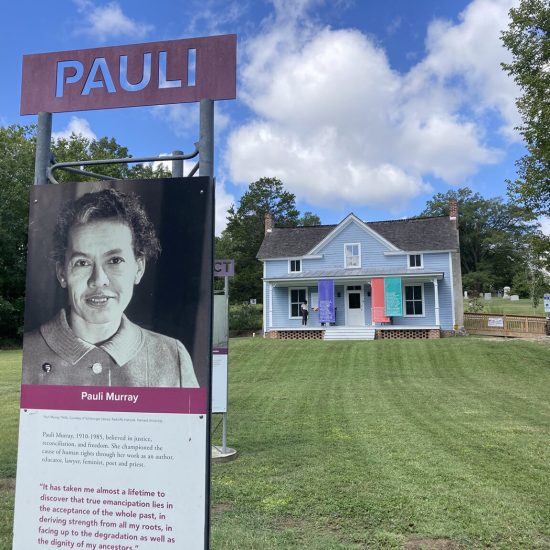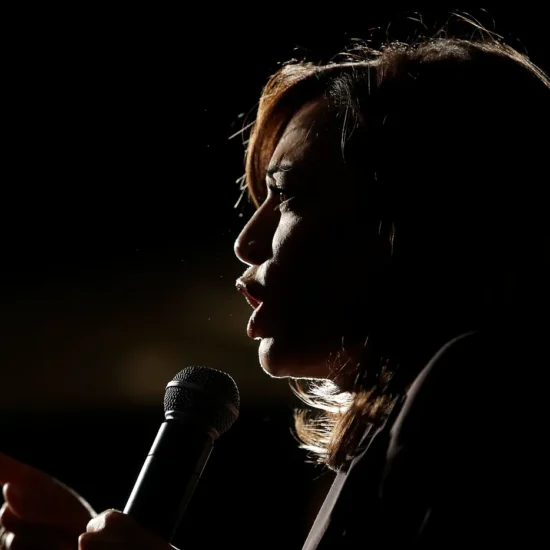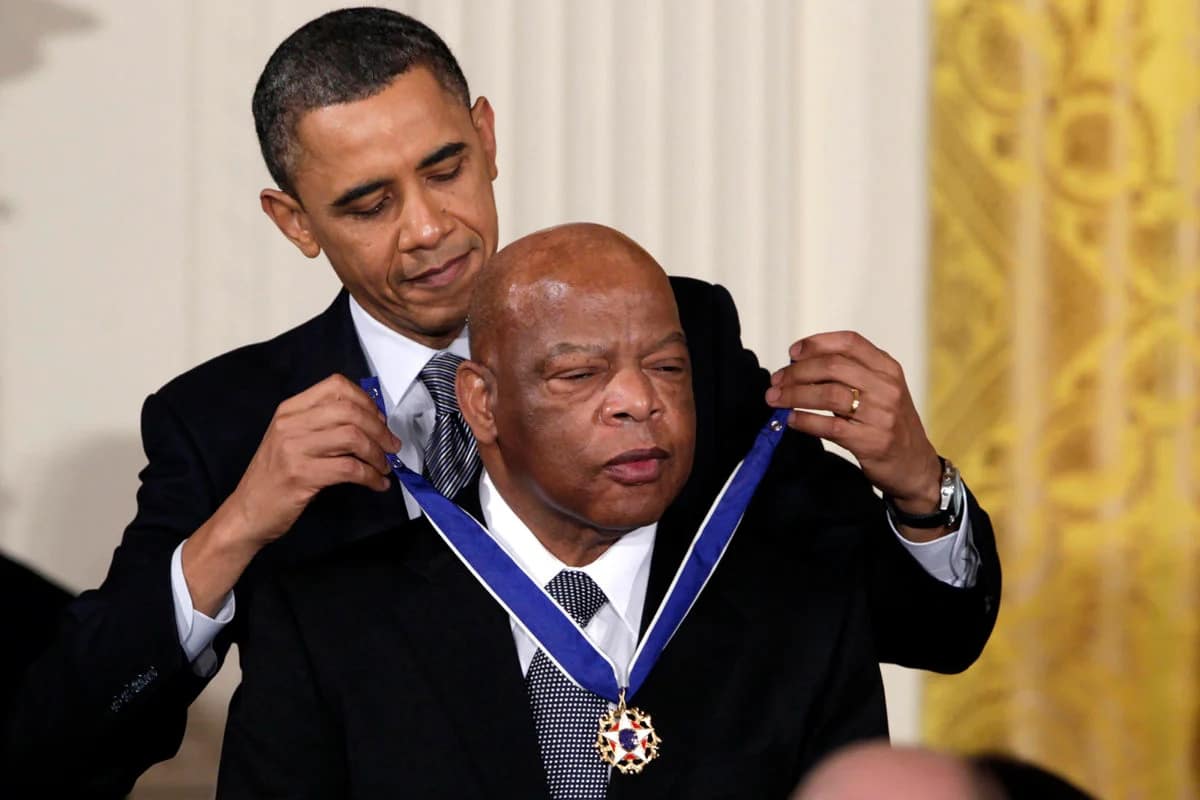
In a single day, we saw the death of two giants. Today, all of us who follow Jesus should offer prayers of gratitude for the Rev. C.T. Vivian and Congressman John Lewis and their extraordinary lives of faith. We should certainly surround their families in prayer and rejoice in the promise of resurrection that is given to these and to all who follow Christ.
Both men burst on the national stage through courageous actions in Selma, Alabama. When struck in the face so powerfully that he fell to the ground for lifting his voice for the cause of justice, Vivian refused to be silenced. He also refused to strike back. Rather, he stood back up and made the case for justice to the very same law enforcement officer who had knocked him to the ground. Several weeks later, Lewis led 600 protesters across the Edmund Pettus Bridge in Selma, right into the face of anger and injustice.
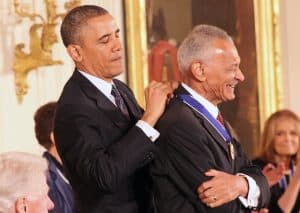
President Barack Obama places the Presidential Medal of Freedom on C.T. Vivian in the East Room of the White House on Nov. 20, 2013. (Adelle M. Banks/Religion News Service)
Starting more than a half century ago, both of these faithful Christians offered not only their voices but also their bodies, indeed their whole selves, to the cause of justice and to the deeply held conviction that we are all the children of God. They were not content to be silent or still in the face of injustice. Across decades of work and witness, they embodied St. Paul’s challenge that followers of Jesus offer our selves “as living sacrifices, holy and acceptable to God,” since doing so is an act of real worship. (Romans 12:1-2) For sure, they were unwilling to be conformed to the world’s pattern of injustice and hate.
Years later, Lewis remembered: “You saw these men putting on their gas masks and behind the state troopers are a group of men, part of the sheriff’s posse, on horses. They came toward us, beating us with nightsticks, trampling us with horses, and releasing their tear gas. I was hit in the head by a state trooper with a nightstick. My legs went from under me. I don’t know how I made it back across the bridge but apparently a group just literally took me back.”
More than 55 years have passed since those days in Selma. And yet in these painful spring and summer days of 2020, we have found ourselves still surrounded by the unavoidable realities of racial injustice and police brutality. Under the prophetic and courageous leadership of Lewis, Vivian, and others, our nation took first steps toward justice and honest reconciliation. They are a powerful reminder of the impact that can be made by faithful followers of Jesus who are willing to speak boldly, act courageously, and demand transformation. They remind us that real transformation is not found only in lofty aspiration or speech. It absolutely requires courageous action and changing laws. It requires a willingness to offer the whole self in sacrificial ways.
Now there are many more steps that need to be taken and many more bridges that need to be crossed. Lewis and Vivian have joined many others in that cloud of witnesses who have run the race before us. The question for this day is whether those of us who lead the church or who call ourselves followers of Jesus will also be willing to stand up, speak out, and offer ourselves as living sacrifices so that all the children of God, black, brown, and white, might know justice, righteousness, and peace.
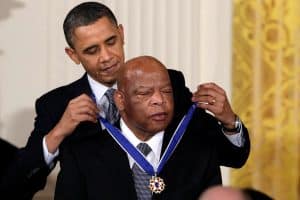
In this Feb. 15, 2011 photo, President Barack Obama presents a 2010 Presidential Medal of Freedom to U.S. Rep. John Lewis during a ceremony in the East Room of the White House in Washington. (Carolyn Kaster/Associated Press)
These days, Lewis’s words are particularly poignant. In an address at Bates College in 2016, Lewis, who represented Georgia’s 5th congressional district that includes the Cooperative Baptist Fellowship’s Decatur offices, reflected on his relationship with Dr. Martin Luther King Jr. and gave voice to a theme that resonated across his life.
King, Lewis said, “inspired me to stand up, to speak up, and speak out. And I got in the way, I got in trouble — good trouble, necessary trouble. … You must find a way to get in the way and get in good trouble, necessary trouble. … You have a moral obligation, a mission, and a mandate, when you leave here to go out and seek justice for all. You can do it. You must do it.”
The pursuit of racial justice and honest reconciliation is most of all an act of discipleship. It flows naturally from following Jesus, who called us to bring good news to the poor, release to the captives, recovery of sight to the blind and to let the oppressed go free. For that reason, we cannot opt out of it. We must be found faithful. That calling requires not only our prayers, our words, and our hopes but also our actions and our whole selves. We are called to offer ourselves as living sacrifices, as holy interruptions, as signs of grace and demonstrations of justice.
By the power of the Holy Spirit, we can do it. We must do it.
Note: This piece first appeared on the CBF Blog.

